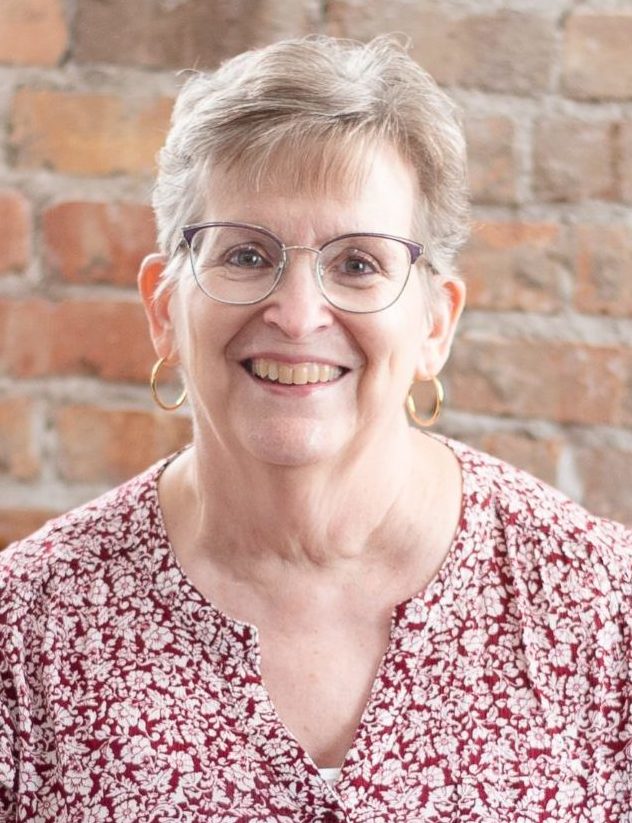

The USMB Board of Faith and Life is encouraging congregations to become more informed and involved in ending human slavery and trafficking by observing Freedom Sunday on the day of their choice sometime in 2020.
“Trafficking humans is a much more prevalent issue than most of us realize and affects us all in ways we may not even be aware,” U.S. BFL chair Tim Sullivan says. “As we seek to increase our impact across the world, let’s stand with those whom Jesus stood with and for—the least, the lost and the oppressed.”
USMB congregations in the Fresno, California, area are invited to gather Feb. 23, 2020, at North Fresno Church for a Freedom Sunday service at 6:00 p.m. hosted by the Central Valley Justice Coalition (CVJC) in partnership with Fresno Pacific Biblical Seminary and two USMB congregations—North Fresno Church and Willow Avenue Mennonite Church.
CVJC, headquartered in Fresno, has designated the last Sunday of February as their annual Freedom Sunday.
The evening will include corporate worship, an educational component, a video of a survivor story, an opportunity to recognize the ways that we may have been part of the problem, knowingly or unknowingly, and action steps for being part of the change, says Christa Wiens, CVJC education coordinator who also attends North Fresno.
The International Labor Organization estimates there are 40.3 million victims of human trafficking in the world. But human trafficking isn’t something that happens “over there.” It happens in large and small U.S. cities—and even in our churches, says Wiens.
Wiens recently led a USMB webinar on human trafficking during which she talked about Freedom Sunday and encouraged participants to organize an event in their communities.
In an email interview, Wiens offers suggestions for ways congregations can observe Freedom Sunday.
“Many churches, especially when they are just getting involved, choose to show a short video of a survivor story, pray and have resources available for those who want more,” she says. “Some churches host a prayer walk to pray for this issue in their neighborhoods. Others host a viewing of a documentary (there are many to choose from) to learn more. Many take a love offering to support a local organization working to end trafficking or help survivors.”
Organizations that fight human trafficking can provide resources for Freedom Sunday events. Wiens suggests International Justice Mission as a good organization with which to partner.
Wiens has seen first-hand the benefits of education, including Freedom Sunday.
“As Americans, we are the largest consumers in the world, and we do so within systems that do not require us to know where or how our products are made. When we don’t know the impact of our choices, we unknowingly hurt people here and around the world. When we believe myths about trafficking, it keeps us from seeing the realities which are often in front of us, but which we didn’t know to look for,” she says.
“When we don’t talk about exploitation in our churches, we promote the myth that it doesn’t happen in our churches, which means those in our churches who have been exploited believe they must be the only one. Speaking about trafficking enables people to see themselves and their stories and to ask for help,” Wiens says.
“We worked with a survivor who did not know herself that she had been a victim of trafficking until she attended a Freedom Sunday service. Until then, she had blamed herself. Freedom Sunday enabled her to view her exploitation from a different angle and to understand that she had been taken advantage of. Many victims believe that they are responsible and that what has happened to them makes them beyond hope. Hearing stories of hope allows victims and offenders both to hear that God has something for them and that they are not beyond the reach of his love,” Wiens says.
The first Freedom Sunday was organized about 10 years ago by Not For Sale, an international non-profit organization based out of San Francisco, California, that works to protect people and communities around the world from human trafficking and modern-day slavery. Not For Sale then partnered with Stop the Traffik, a campaign coalition which aims to bring an end to human trafficking worldwide, to take the Freedom Sunday movement international. It has since been adopted by multiple organizations and multiple denominations.
“It is a movement typically spearheaded by organizations to help coordinate churches of all kinds with a united focus,” says Wiens, who also led a seminar on human trafficking at YouthCon 2019, the USMB national youth conference held in Glorietta, New Mexico.
The CVJC website says someone may be a victim of human trafficking if they are:
- not getting paid for their labor,
- not free to change employers,
- being controlled by someone else,
- being forced to do something they don’t want to do or
- has been cheated into payment of debt upon arrival.
In the webinar, Wiens discusses the realities of human trafficking, reviews common myths and discusses how churches can acknowledge their role in knowingly and unknowingly contributing to trafficking.
To view Wiens’ presentation and download resources, visit https://usmb.org/portfolio/webinar-the-realities-and-myths-of-human-trafficking-what-is-our-role/
The webinar series was initiated in early 2019 by the U.S. Board of Faith and Life and is co-sponsored by the Fresno Pacific Biblical Seminary Center for Anabaptist Studies and USMB.


Connie Faber joined the magazine staff in 1994 and assumed the duties of editor in 2004. She has won awards from the Evangelical Press Association for her writing and editing. Faber is the co-author of Family Matters: Discovering the Mennonite Brethren. She and her husband, David, have two daughters, one son, one daughter-in-law, one son-in-law and two grandchildren. They are members of Ebenfeld MB Church in Hillsboro, Kansas.






















